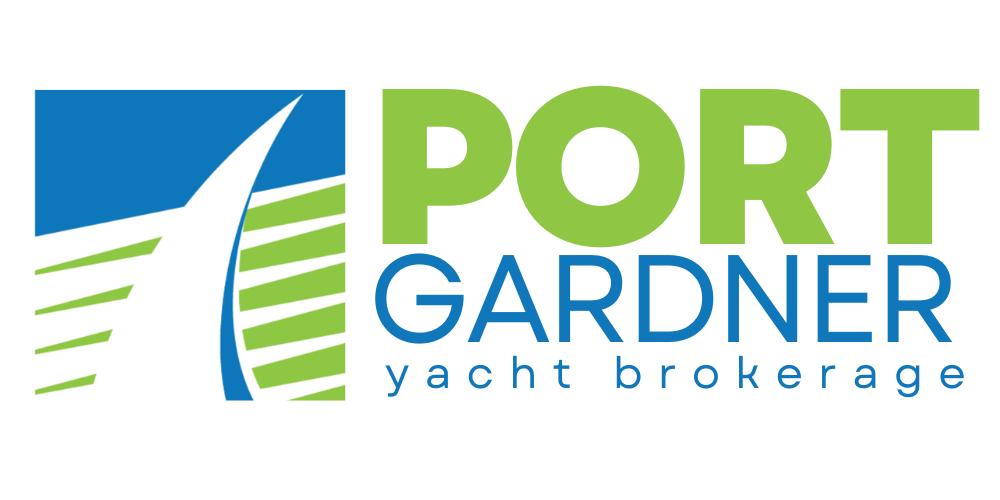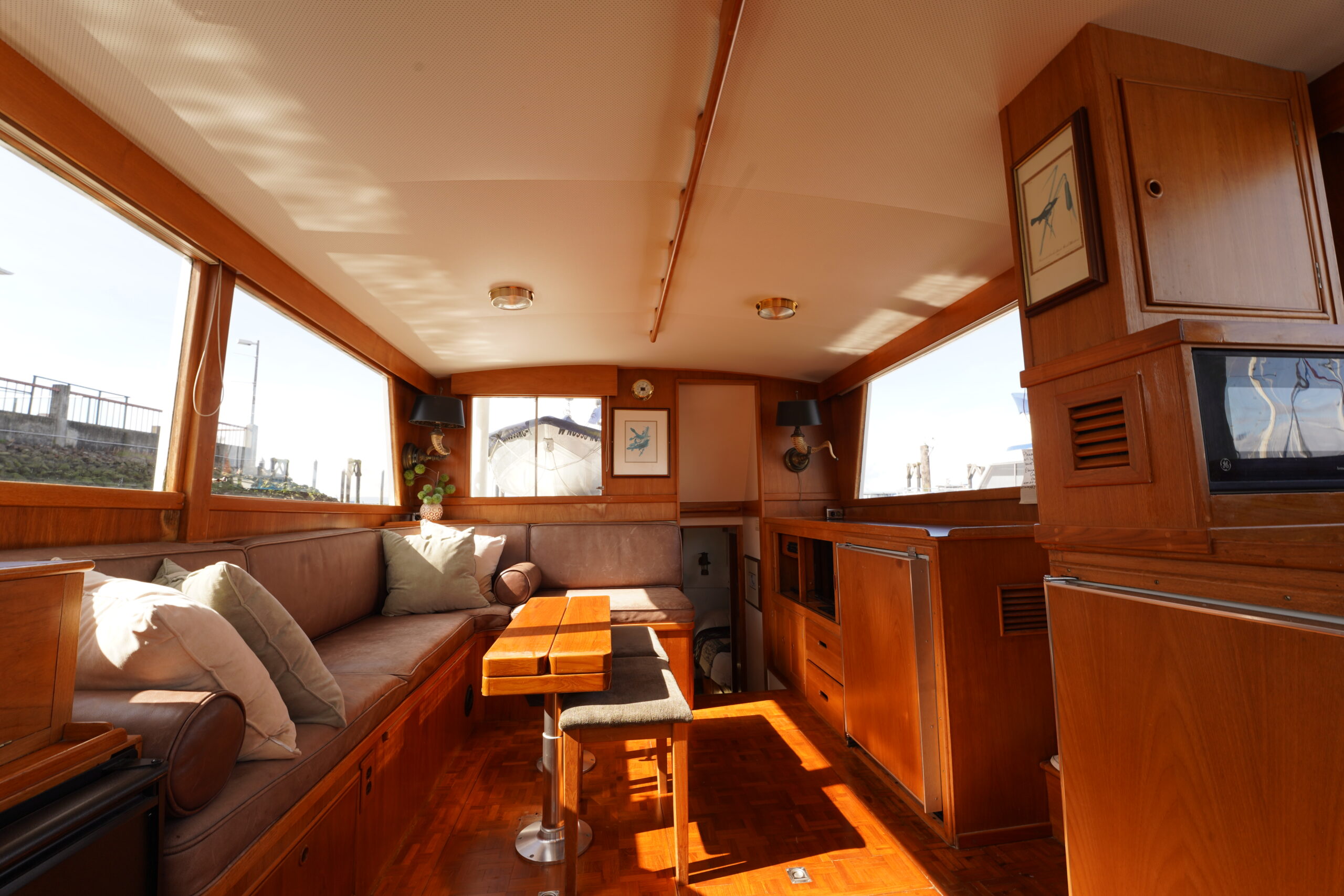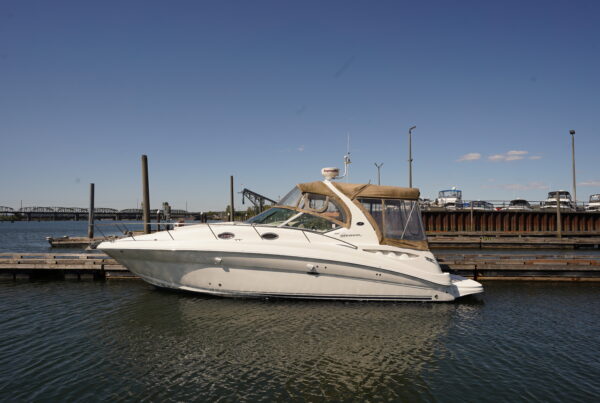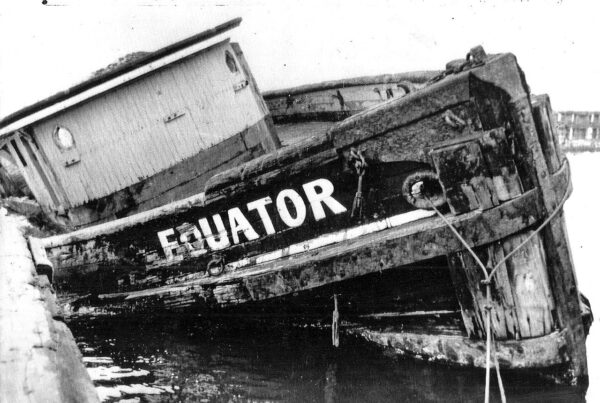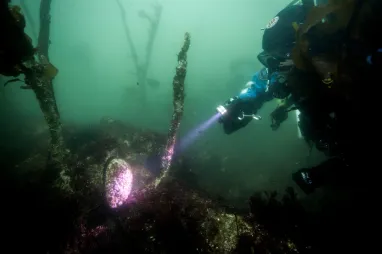Deciding to sell
When you are first thinking about selling your boat, the first step is really understanding exactly why you want to sell. Is it because you want to move up in size, move down in size, your use has changed, or personal or family situations are involved? It’s important to understand your why, and what is leading you to the point of deciding to sell. A boat can be really personal and feel like a part of who you are. Letting go of a boat can for some be difficult to do.
That’s where timing comes into play. We’ve seen far too often that boat owners wait too long to sell, not the other way around. The boat is used less over years and then maintenance and repairs become deferred or doesn’t happen altogether. At that point a boat’s value decreases and the cost to keep the boat gets higher and higher. This becomes a cycle that is really hard to get out of, and at the end of the day you will typically get less for your boat than desired. This is why deciding why and when you are going to sell your boat is so important.
Pricing
So you have your “why” and have ideally decided to sell before any vessel negligence has occurred; great! That’s honestly half of the battle right there. Now if you are looking to sell your boat without a broker, it can be difficult to get comps on your boat. We recommend utilizing Yacht World and Boat Trader active listings to find a price range for you boat. The way we comp boats is by typing in the make and model, and then starting with +/- 1 or 2 years of when your boat was made. For example, say you have a 2002 Silverton 352, we recommend having a range from 2000-2004 Silverton 352s and see what active listings look like.
One thing to note is that the time it takes for all boats to sell across the country is between 16 and 18 weeks. Keep this timeline in mind when selling, and when determining your pricing.

Make sure to look through each listing and try to match engine and features as much as possible, while utilizing exterior/interior photos as a comparison for value. This isn’t a perfect science, but can get you a good ballpark figure to list your boat.
We personally recommend being objective when pricing, as much as possible. Pricing your boat too high means a lack of incoming leads and ultimately costs you money by holding onto your boat, slip costs, maintenance etc. for longer than if you priced your boat fairly. For example a 40ft boat in Everett WA will cost you ~$700/mo for a slip. If you price your boat $5K too high, that $700/mo just for the slip alone will be eaten up in 7 months.
Organization & photos
The photos that you take of your boat is your digital window display. Making sure that you have a clean boat, for both the exterior and interior is incredibly important. Psychology matters and people want to be able to dream about what the boat will be like in their lives. It’s hard to do that when you have boxes of things laid throughout the salon, or a shabby-green exterior of moss and algae.

Once you have cleaned the boat from top to bottom, start working on your photos. Smartphones today are incredible, so you can get most shots with just a phone. We recommend having between 8-10 exterior photos and then 10-15 interior photos. Try to limit photos to a maximum of 30. Think about it, do you really want to scroll through 75 photos, or do you want to have a boat pull you in, and then schedule time to look at it in person?
Make sure to take photos of your engine room as part of your interior photos!
Records & features
Features are great, but they don’t sell boats. If your boat doesn’t have an icemaker but a buyer really wants one, they can always add one in. If somebody loves a boat but it doesn’t have a bow thruster, that shouldn’t be a make or break unless you are competing against the same make/model that does have that feature. Make sure to list how your boat is equipped but we believe it’s important to educate buyers on boat use over feature indulgence.

One thing that really helps sell a boat is having clean and consistent records. Ideally this starts with a log book about every single journey you have taken on your boat; but this is something that starts when you first bought your boat. Similarly, having receipts for any work that you have done and paid for goes such a long ways when buyers are looking at your boat. It will also save you time and money when you have an accepted offer as there is less of a chance that a survey will turn up a big ticket item if you have kept the boat up.
Advertising/marketing
Marketing your boat is incredibly important. Again your photos are the window display of your listing, so you want photos that intrigue potential buyers. Make sure to write your description so that it creates a picture of how your boat is best used and then give a quick overview of the features so that you don’t get questions like “How many engine hours does your boat have?”
When listing your boat privately we recommend starting with 1-2 channels for advertising your boat. One of the best places to start is by looking at manufacturer forums. One of the best examples is Tugnuts.com for Ranger Tugs and Cutwater Boats. This can be a great way to sell your boat if the forum has a spot for selling listings as these are high-intent buyers that are looking for a boat like yours specifically.
From there, you can start to add on other channels. Facebook Marketplace is the next channel we would recommend as the number of facebook uses across the world guarantees views and potential buyers to reach out. The biggest problem with Facebook is doing with the noise of tirekickers and “is this available” messages. But once you sift through those, there is strong opportunity to find a buyer this way.
Another similar channel to Facebook Marketplace is Craigslist. We’ve found Craigslist to work very well in Washington, but in other states less so; so it is location dependent. Again, Craigslist has a lot of noise so you want to set up short calls with potential buyers to understand what they are looking for in a boat (i.e. how they will use it) and don’t get sucked into “feature selling.”
From there if those three channels are not getting enough leads quickly enough, then you can go to BoatTrader where you buy an advertisement space for XX weeks. BoatTrader is the most expensive option, which is why we recommend it last. As of right now, BoatTrader will charge ~$200 for 12 weeks of advertising, though you can opt for shorter time periods at a higher cost per week. They will automatically re-charge you after the time period you select so be very careful if you go this route!

Showings
When you are booking showings, make sure to be professional and set a good stage for your buyers. Be a real person, tell stories about how you used your boat, and be honest with them. Tell them about the parts of your boat you loved and parts you really didn’t. Honesty builds trust, and trust turns into strong relationships and good deals.
We recommend that when a buyer puts in an offer to you, to take a 10% deposit, these are refundable up until all contingencies are cleared.
Negotiation
Know your bottom line, and exactly what you are willing to accept at the lowest price. This helps to facilitate negotiations when buyers are asking “what price will you accept.” Try to have them provide a number first, unless you are firm at a specific price for a various reason. Try to utilize as much logic as possible when negotiating. We really like to utilize a survey to confirm market value of any boat, and this helps to remove emotions while really leveraging logic and a surveyor’s professional experience being aboard your boat.
Typically you will have a pre-survey offer, and then after a survey there will be additional negotiation based on any findings. This doesn’t always happen, but we find that negotiations happen a second time after a survey about 60% of the time.
Make sure to have a written offer with contingencies in place, with a specific time period for the buyer to close on your boat. This protects both of you, and also your time as well.

Closing:
When selling your boat privately you will want to make sure that there is a bill of sale in addition to the written signed offer on both sides. If there is no lien then you will transfer the title in exchange for money as discussed. If there is a lien involved, reach out to your lender as soon as possible in the process, and they will help you to navigate any complexities regarding paying off your lien when selling your vessel. There are maritime title companies that exist as well to help transfer the title and also facilitate the transfer of registration for a buyer as well. So those are always a great option.
Make sure to set up a date for closing where any and all paperwork needs to be signed and then hand over the keys with the title in exchange for funds!
Head over to our listings page to peruse our current catalog.
